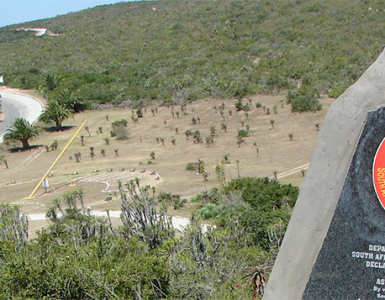FINALITY:Medico says the risk of getting COVID infection far outweighs the risk of vaccination in teenagers…
By Dr Sheri Fanaroff
CAN MY TEEN EXERCISE AFTER HAVING A VACCINE?
There are no current official guidelines on exercise post vaccination. Out of caution, some countries (eg. Singapore) have advised adolescents and patients under 30 years to avoid strenuous physical activity (intense exercise) for one week.
My advice is for teens to avoid very strenuous activity eg. Intense running, cycling, and other cardiovascular activity for 5 to 7 days. Within this period, they should monitor their heartrates and how they are feeling when participating in milder forms of exercise.
Should resting heartrate be elevated, or heartrate go up more than usual while exercising, they should rather rest for at least a full week. (Note that the recommendation following COVID infection is to not do strenuous exercise for two weeks post recovery).
For teens participating in competitive sports or intense training, the timing of the vaccine should be carefully considered. However, there have been several outbreaks in inter school activities, and vaccinating the participants can reduce this. Vaccines will also hopefully allow parents back as spectators at sporting events.
CAN MY CHILD HAVE A VACCINE WITHOUT MY CONSENT?
During the Department of Health briefing on Friday, Nicholas Crisp stated that based on the Children’s Act that allows children aged 12 to 17 to give their own consent for medical treatment, children in this age group do not require their parents’ consent to have a COVID vaccine.
In other words, a teenager can register and consent to being vaccinated without their parent’s permission.
ARE VACCINES FULLY TESTED AND APPROVED IN THIS AGE GROUP?
The FDA has fully approved the Pfizer Cominarty vaccine for use in individuals 16 years and over. (Full approval was only granted on 23 August 2021- prior to this it was under Emergency Use Authorization).
The Pfizer vaccine is approved for individuals aged 12 to 15 years under Emergency Use Authorization, but is expected to soon receive full approval. SAHPRA (South African Health Products Regulatory Authority) has approved the use of the Pfizer Cominarty Vaccine in terms of section 21 to include individuals 12 years and older (this was on 10 September 2021 as a consequence of a review of updated safety and efficacy information). 13.4 million US children under age 18 have received at least one dose of a Covid-19 vaccine, representing 57% of 12 to 17 year olds in the US. In many countries in Europe, including France, Italy and Spain, more than 60% of adolescents have already been safely vaccinated. So, our teens are not the first to get their vaccines.
Parents can feel reassured that paediatric associations around the world have “done the research” for them: they have evaluated the safety and efficacy of vaccinations and recommend COVID vaccines for all teenagers aged 12 to 17 years.
MY TEEN HAS ALREADY HAD COVID-19 INFECTION – SURELY, HE OR SHE STILL HAS IMMUNITY AND DOESN’T NEED TO VACCINATE?
Having COVID-19 infection does confer immunity, however the immune response mounted is extremely variable and unpredictable. People who had mild infections may not mount a high enough immune response. In contrast, the vaccine is designed to induce a standardised, controlled immune response to the body. The antibodies created and T-cells stimulated by the vaccine provide a more reliable, robust immunity that is longer lasting and more efficient at dealing with new variants of virus encountered. (There are several studies available that confirm this point).
In a teenager who has had COVID infection, following up with a dose of Pfizer vaccine is extremely effective in boosting the immune response (one dose of vaccine acts as a “booster”).
A teenager who has had COVID-19 infection should wait at least 30 days after recovering from a mild infection or 90 days after recovering from a severe infection before having a vaccine.
HOW WILL TEENAGERS REGISTER AND BE IDENTIFIED FOR VACCINATION?
We are still waiting for clarity on this. The EVDS is being adapted and teens will be able to register electronically with an ID number or a passport number. (ID numbers appear on birth certificates and SA passports). EVDS is expected to open to 12 years and over in the next few days.
WILL HAVING A VACCINE AFFECT MY TEENAGER’S QUALITY OF LIFE?
Once more adolescents have been vaccinated, there will be less need to wear masks and socially distance in small groups.
In larger crowds, where it is less certain who is vaccinated, masks will still be recommended while the pandemic continues, until a higher proportion of the population is immune.
Teenagers who are vaccinated will have freedom to travel to other countries, attend sporting events and enter nightclubs and restaurants that may not allow unvaccinated patrons. Two of our leading South African universities (Wits and UCT) have already proposed vaccine mandates from next year for students wishing to attend campus in person.
This is after overwhelming evidence analysed by the scientists and academics at these institutions confirmed that vaccines are both safe and effective.
Some schools, cultural and sports clubs may follow suit, making it difficult for unvaccinated teenagers to participate.
• CONCLUSION
Over the last 18 months, I have seen many outbreaks in teenagers (some severe), many instances of “long Covid”, and many teens who have transmitted COVID to elderly family members. I have seen teenagers forced to quarantine after exposures, teenagers isolated, and teenagers struggling with depression and anxiety.
The take-home message from my post is that the risk of getting COVID infection far outweighs the risk of vaccination in teenagers. I can say without hesitation that I will be relieved to have my own teenagers at the front of the queue to get vaccinated this week, so that they can return to a more normal lifestyle.
*This is second and last of the two-part series of articles dealing with the issue of teenage vaccination, penned by family physician Dr Fanaroff and which originally appeared in the Department of Health website.





























